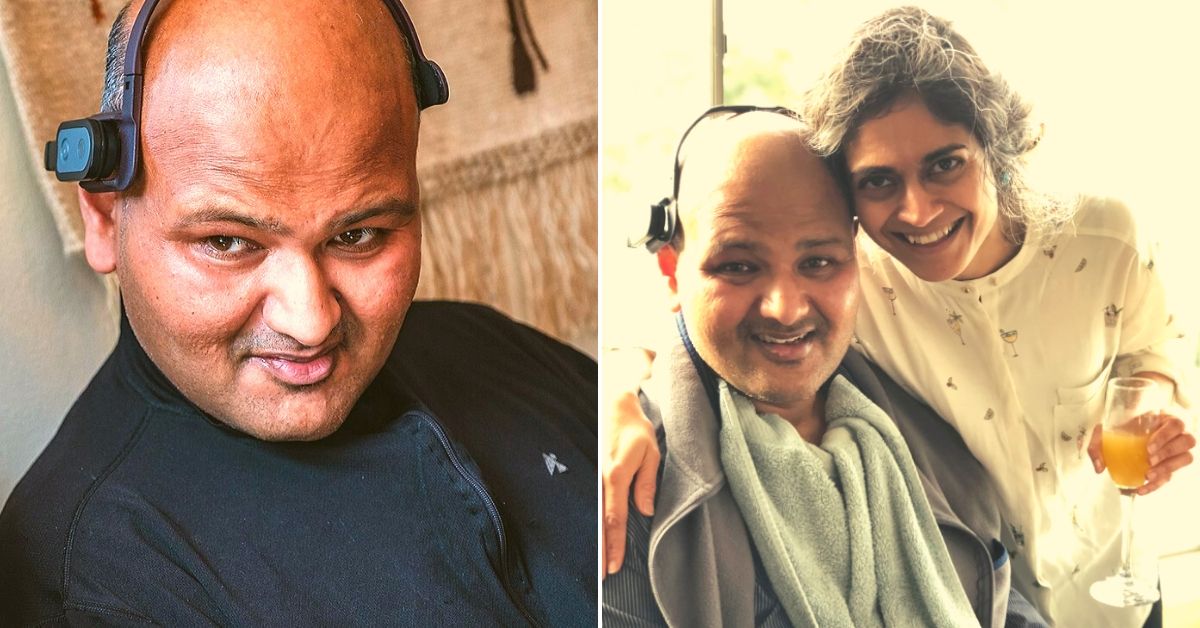Dr Rahul Desikan: ALS Cost Him His Life, But His Work Will Save Lives of Others
“I went into medicine to take care of patients with brain diseases. Now, I have one of the diseases that I study...Even with this lethal disease, I continue to find neurology fascinating and beautiful."

On July 14, 2019, Dr Rahul Desikan, a pioneering researcher of neurodegenerative diseases at the University of California, San Francisco, passed away after losing his two-and-a-half-year battle with amyotrophic lateral sclerosis, or ALS.
ALS progressively destroys nerve cells controlling voluntary muscle movement. In other words, the brain is no longer able to communicate with muscles in our body. As a consequence, people lose the ability to walk, talk, eat, swallow and finally breathe. There is no known cure for the disease, and nothing can stop its advance.
This cool water-saving shower head can save upto 60% of the water that would have otherwise been used with a regular shower!
In a cruel twist of fate, the neuroscientist and his collaborators were a month into the largest study ever undertaken of the genetics of ALS, when he began to experience symptoms he recognized from his own research.
Five months of tests confirmed his worst fears: that he had ALS. He was 38 at the time.
Despite losing basic motor functions like the ability to walk, speak or use his hands, he continued his research, publishing a series of academic papers on the genetic risk factors for ALS and other such conditions and mentoring research students.
“I went into medicine to take care of patients with brain diseases. Now, I have one of the diseases that I study…Even with this lethal disease, I continue to find neurology fascinating and beautiful,” he wrote in a column for the Washington Post published on April 28, 2019.

His life and work
Born in New Delhi, Dr Desikan’s family had emigrated to New York when he was a young boy. After attending the Bronx High School of Science, he won a scholarship to study at Boston University.
There, he went on to earn a PhD in Neuroanatomy and Neurobiology, besides attending medical school there. In 2015, he was appointed a clinical fellow in neuroradiology at the University of California, San Francisco (UCSF).
It was during his PhD at Boston University, when Dr Desikan and researchers at Harvard University developed the ‘Desikan Atlas’, “which labels 34 regions of each hemisphere of the human cortex automatically using data from MRI scans,” according to The Scientist.
This allows doctors to label critical regions of the brain, ascertain their size through scans and monitor the effect of medication.
“[It] quickly became one of the most widely-used tools in the neuroscience community, has been cited more than 4500 times,” writes Desikan’s colleague Christopher Hess. “Color figures of the atlas in its various forms still fill the pages of our leading scientific journals.”
During his research at UCSF, he also made other remarkable findings in understanding the genetic architecture of other neurodegenerative disorders like Alzheimer’s, Parkinson’s dementia, bipolar disorder and schizophrenia.
For example, he “developed a polygenic hazard score (PHS) for Alzheimer’s disease that gauges age-specific disease risk based on dozens of genetic variations” and how controlling blood lipid levels could delay or prevent the onset of this disease.
“Colleagues say his skill at mining enormous data sets allows him to detect shared genetic risks for different diseases. He recently led a team that integrated genetic information into a score for predicting the age of onset of Alzheimer’s. The approach, which utilizes information from more than 70,000 people, may help scientists design future clinical trials,” says this Washington Post tribute, describing the PHS score.
Going beyond the disease itself, his life’s work has indeed strengthened the foundation upon which scientists around the world can better understand the complexities of the human brain.
Irrespective of the obstacles fate had put before him, Dr Desikan never once wavered in his pursuit of the truth.
This is the mark of any legendary scientist.
Also Read: The Forgotten Scientist Who Broke The Glass Ceiling For Indian Women in Physics
(Edited by Gayatri Mishra)
Like this story? Or have something to share? Write to us: [email protected], or connect with us on Facebook and Twitter.
If you found our stories insightful, informative, or even just enjoyable, we invite you to consider making a voluntary payment to support the work we do at The Better India. Your contribution helps us continue producing quality content that educates, inspires, and drives positive change.
Choose one of the payment options below for your contribution-
By paying for the stories you value, you directly contribute to sustaining our efforts focused on making a difference in the world. Together, let’s ensure that impactful stories continue to be told and shared, enriching lives and communities alike.
Thank you for your support. Here are some frequently asked questions you might find helpful to know why you are contributing?


This story made me
-
97
-
121
-
89
-
167













